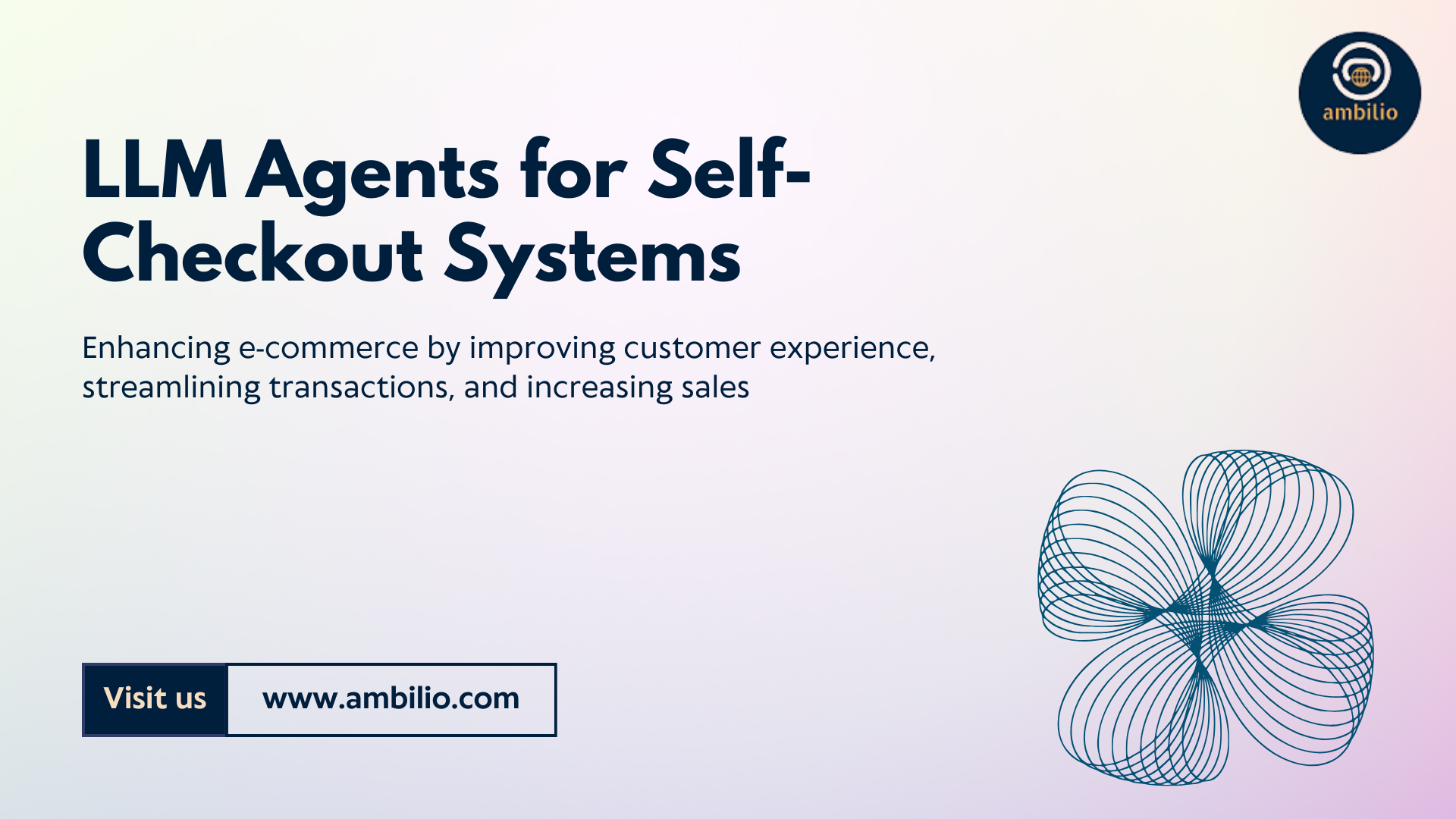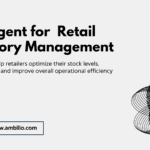The integration of LLM Agents for Self-Checkout Systems in e-commerce is an emerging innovation that aims to automate and streamline the online purchasing process. As online shopping becomes more sophisticated, customers expect seamless transactions, quick assistance, and personalized recommendations. By leveraging the capabilities of Large Language Models (LLMs), self-checkout systems can offer an improved customer experience while optimizing operational efficiency. This article will explore the problems solved by implementing LLM agents in self-checkout systems, how these systems work, the benefits, and the quantifiable ROI businesses can expect.
The Problem with Traditional Self-Checkout Systems
In the e-commerce landscape, traditional self-checkout systems have inherent limitations. Many rely on rigid rule-based automation for completing transactions, but they struggle to address complex queries or real-time customer needs. These issues can manifest in several ways:
- Limited Assistance: Customers often face difficulties during checkout, such as confusion over shipping options, unclear payment instructions, or trouble applying discount codes. Traditional systems cannot handle real-time troubleshooting or address these queries efficiently.
- High Cart Abandonment Rates: Many customers abandon their carts due to frustration with a lengthy or unclear checkout process. Without proper guidance, customers may feel overwhelmed or leave the transaction halfway, leading to significant revenue loss.
- Static Recommendations: Recommendations provided during checkout are often generic, failing to account for the unique needs or preferences of individual customers. This one-size-fits-all approach reduces the opportunity for cross-selling or upselling relevant products.
- Operational Inefficiency: Current systems often require manual interventions for tasks such as catalog updates, customer support, or payment troubleshooting. This leads to operational overhead, reducing scalability and efficiency.
How LLM Agents Solve These Problems
LLM Agents for Self-Checkout Systems offer a more advanced solution by using natural language processing (NLP) and machine learning to address the complexities of customer interactions in real-time. These systems are designed to think, respond, and interact like human agents, but with far greater speed and accuracy. Here’s how they solve the key issues:
1. Enhanced Customer Interaction
LLM agents can handle complex queries during the checkout process by engaging in natural, multi-turn dialogues with customers. They can offer step-by-step guidance, ensuring the customer is never lost or confused during their purchase journey. For example, if a customer encounters an issue with a payment method or needs clarification on shipping options, the LLM agent can provide real-time support through conversational AI.
Solution: This reduces frustration and prevents cart abandonment by ensuring the customer can easily complete the checkout process, regardless of their technical proficiency.
2. Advanced Natural Language Processing for Queries
One of the core strengths of LLMs is their ability to understand and respond to natural language queries. This means customers can ask specific questions, such as “How do I use this discount code?” or “What’s the estimated delivery time for this product?” The LLM agent can interpret the query, retrieve the required information, and respond in a conversational tone that feels natural to the customer.
Solution: This level of interaction makes the checkout experience smoother and more intuitive, removing friction points where customers might otherwise become confused.
3. Personalized Recommendations and Upselling
LLM agents are capable of processing vast amounts of customer data, including purchase history, browsing behavior, and demographic information. By analyzing this data, LLMs can offer personalized product recommendations during checkout, increasing the chances of additional purchases. For example, if a customer frequently buys fitness gear, the LLM agent can suggest relevant items like workout accessories or nutrition supplements.
Solution: By making the experience more personalized, LLM agents increase cross-selling and upselling opportunities, boosting overall revenue per customer.
4. Streamlined Payment Processing
LLM agents integrate seamlessly with payment gateways to automate the payment process. They can verify payment details, process transactions securely, and address any issues (such as incorrect card details or insufficient funds) in real-time. If a problem arises, the LLM agent can suggest alternative payment methods or guide the customer through troubleshooting steps.
Solution: This minimizes delays, reduces errors, and ensures that customers can complete their purchases quickly and securely.
5. Real-Time Order Confirmation and Updates
Once a purchase is completed, LLM agents automatically generate and send order confirmations, including details like the order number, items purchased, total cost, and estimated delivery time. They can also provide real-time updates on shipping status or delivery estimates, keeping the customer informed throughout the post-purchase journey.
Solution: This level of transparency enhances the overall customer experience, building trust and encouraging repeat purchases.
6. Data Collection for Continuous Improvement
LLM agents collect valuable data from each customer interaction during the checkout process. This data can be analyzed to identify patterns in customer behavior, optimize marketing strategies, and improve the overall shopping experience. Businesses can use these insights to refine their operations, predict customer needs, and make data-driven decisions.
Solution: By leveraging data analytics, LLM agents can provide continuous feedback loops, improving their own performance and the overall business strategy.
Quantifiable Benefits and ROI of LLM Agents
The benefits of implementing LLM Agents for Self-Checkout Systems are both operational and financial. Below are some quantifiable metrics that illustrate the ROI.
1. Reduced Cart Abandonment
The integration of LLM agents significantly reduces cart abandonment rates by providing real-time assistance during the checkout process. Industry estimates suggest that cart abandonment rates typically hover around 70%. With the intervention of LLM agents, this figure can drop by up to 30%, translating to increased conversion rates and revenue.
2. Increased Average Order Value (AOV)
Personalized product recommendations offered by LLM agents lead to higher average order values. Businesses can see an AOV increase of 10-15% by presenting relevant product suggestions during checkout.
3. Reduced Customer Support Costs
By automating customer support during checkout, businesses can reduce the need for human agents. LLM agents can handle repetitive inquiries, allowing human support teams to focus on more complex issues. This can lead to cost reductions of up to 25% in customer support operations.
4. Higher Customer Retention Rates
The personalized interactions and enhanced support provided by LLM agents lead to higher customer satisfaction and retention rates. Studies indicate that businesses with effective AI-driven customer engagement see retention improvements of 5-10%.
5. Faster Checkout Times
Streamlined payment processing and real-time troubleshooting lead to faster checkout times. Customers complete their transactions more efficiently, which reduces wait times and enhances overall satisfaction. A faster checkout process can boost transaction throughput by 20%.
6. Scalability
LLM agents can handle thousands of transactions simultaneously without the need for additional staffing. This scalability is particularly useful during high-demand periods, such as Black Friday or holiday sales, when traditional systems may struggle to keep up.
Final Words
Implementing LLM Agents for Self-Checkout Systems in e-commerce provides a cutting-edge solution to many of the common challenges faced by traditional self-checkout platforms. From improving customer satisfaction to increasing sales and reducing operational costs, LLM agents offer a robust ROI for e-commerce businesses looking to stay competitive in a rapidly evolving market. With quantifiable benefits such as reduced cart abandonment, increased AOV, and reduced customer support costs, it’s clear that LLM agents are a vital asset in transforming the e-commerce checkout experience.



